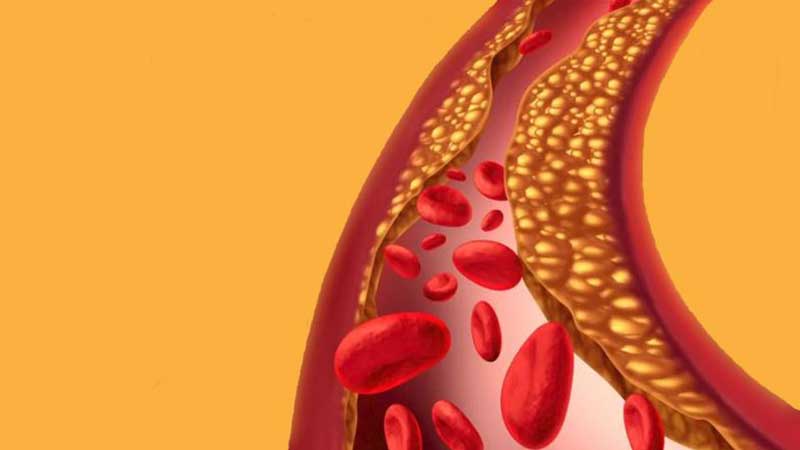

The Good, the Bad and the Ugly of Senior Heart Health
February is American Heart Month—yes, for Valentine’s Day—but also for the vital organ that keeps us moving. Because heart disease is so prevalent worldwide, it garners a tremendous amount of research. Studies have been done on the effects—both good and bad—of many different factors on heart health, including eating healthy. From avocados and spirituality to oral bacteria, some of the findings may surprise you.
The Good: Caffeine, Avocados and More
- If you’re a dedicated coffee or tea drinker (or both!), the caffeine may be doing you good. An article from Harvard Health Publishing says, “People who sip several daily cups of either or both beverages may be less likely to have a stroke than people who don’t drink either.” That’s based on a four-year study of 365,000 people aged 50 to 74. The American Heart Association (AHA) adds, “People who regularly drink coffee may be less likely to develop chronic illnesses, such as cardiovascular disease.”
- Holy guacamole! Avocado fans can rejoice—many studies have shown that this fruit is a little green powerhouse. Besides being packed with nutrients and vitamins, “Avocados are rich in heart-healthy [mono-unsaturated] fats, which help lower LDL (‘bad’) cholesterol,” according to the Cleveland Clinic. “Low LDL levels reduce the risk of heart disease and stroke.” And if you’re worried about the natural fat in avocados, studies have shown a link between eating avocados and lower body weight, body mass index, and waist circumference. However, this is not to say that eating avocados will help you lose weight.
- Dietary fiber has several heart health benefits. It removes cholesterol from the body, it can make you feel full and reduce your overall calorie intake, and it can help control blood sugar levels, all of which can lower your risk for heart disease. Dietary fiber intake is also associated with lower blood pressure and inflammation, both of which are important risk factors for heart disease. Recent research suggests that fiber from whole grains may be better for the body than fiber from fruits and vegetables, which may cause inflammation.
- Lots of research has shown connections between mental health, state of mind, and heart health. If you’re African American, new research suggests that spirituality and religious practices may also help your heart. An article from the Mayo Clinic says, “Higher levels of religious practices were associated with greater likelihood of intermediate or ideal levels of heart health.” It adds: “Recognizing the importance of religious practices and spirituality in the lives and health of African Americans may be key to improving patient care and reducing heart health disparities in African American communities.”
The Bad: COVID-19, Isolation, and Sleep Problems
- “Studies are linking the pandemic to higher rates of fatal heart disease and stroke,” reports the AHA. In fact, anyone who’s had COVID-19 may be at risk for heart problems. “Even in people who were previously healthy and had no risk factors or problems with the heart, COVID-19 affected them,” says Dr. Ziyad Al-Aly of Veterans Affairs St. Louis Health Care System. Those studied show a “higher risk of heart problems than people who did not get COVID-19.” Even the isolation that the pandemic caused was bad for hearts. “People often avoided or delayed treatment because of COVID-19 fears,” said Dr. Donald Lloyd-Jones, a cardiologist and the president of the AHA. “People just weren’t able to check in with their doctor and know their numbers and make sure that those things were under control.”
- Plenty of studies have shown a direct link between sleep (both amount and quality) and heart health. Researchers at Northwestern University recently warned about the effects of artificial light during sleep. “Just a single night of exposure to moderate room lighting during sleep can impair glucose and cardiovascular regulation, which are risk factors for heart disease, diabetes and metabolic syndrome,” said Dr. Phyllis Zee, a Northwestern Medicine physician. “It’s important for people to avoid or minimize the amount of light exposure during sleep.”
The Ugly: Oral Bacteria
- How’s your tooth brushing game? In a new study of the link between oral bacteria and hypertension (high blood pressure), some oral bacteria were associated with the development of hypertension in postmenopausal women. It’s important to note that the American Dental Association (ADA) has not proven a link between dental hygiene and hypertension-causing bacteria. “However,” says the ADA, “many studies show an as-yet-unexplained association between gum disease and several serious health conditions, including heart disease.” Brushing twice a day, flossing, and seeing your dentist regularly can help you avoid gum disease and other problems caused by oral bacteria.
Dealing with heart health issues can be challenging, especially for older adults and those with other health concerns. Right at Home’s trained caregivers can provide assistance, from helping with meals and medication reminders to assisting with dressing and hygiene. To find out more, contact the location nearest you and ask for a FREE in-home consultation.







